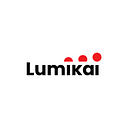Lumikai leads $2M round in India’s leading homegrown, profitable AR/VR startup Autovrse
We are excited to announce that we’ve led a $2M seed round in AutoVRse, a homegrown, profitable AR/VR startup aiming to revolutionize how enterprises create, deploy, and manage interactive AR/VR applications at scale.
The AR/VR industry has been around for a while. Since the Oculus VR acquisition in 2014, the industry has sparked several false starts where it overpromised and underdelivered. That said, there is still optimism about the hardware, accentuated by the recent launches of the Apple Vision Pro and the Meta Quest 3. IDC estimates that VR headset sales are going to grow at a ~46% CAGR in the next 3 years, while Omidia estimates an influx of 100M standalone headsets over the next 3 years. A majority of this adoption, it is believed, will be driven by enterprise use cases.
There is compelling evidence of enterprises such as manufacturers, retailers, hospitals, and urban planners using AR/VR applications for specific use cases that are not solved as efficiently or effectively by traditional means. For example, Johns Hopkins uses AR/VR devices to train surgeons and perform surgeries. According to ABI Research, enterprises spent an estimated $6.3B on VR-based training in 2022, a significant jump from just $0.2B in 2018. This includes a range of industries and types of training such as medical training for surgeons, soft skills training for the retail workforce, sales training for technical sales reps, etc.
Recently, heavy industries have started adopting VR for safety and process training for their workforce. Industries such as mining, manufacturing, oil and gas, use complex machinery and operate in hazardous environments, which invariably leads to injuries and fatal accidents. According to the International Labour Organization, there are approximately 270 million reported accidents in these industries every year, of which 2 million end up in fatalities. This has an estimated cost of $1.25 trillion to the global economy.
A majority of these accidents are attributed to a lack of worker readiness resulting from ineffective training methods. Traditionally, safety and process training for the industrial workforce is carried out in three ways:
- Classroom training: this is not as effective as it does not provide a contextual or visceral experience to learners. This is further fraught with problems on account of high blue-collar work churn resulting in the requirement for repeat worker training.
- Using OEM simulators: which are expensive and not portable
- Using active machinery: which leads to downtime and is risky for novices
The frequency of required training is also high, given that these industries employ blue-collar workers who are susceptible to churning out.
VR devices and applications offer a comprehensive solution for this, as a user can be dropped into an immersive environment while ensuring safety and learning outcomes by leveraging real-time haptic feedback. At the same time, these devices are cheaper and more portable than active machinery and OEM simulators. According to a study by Microsoft, blue-collar workforce training applications on the Hololens reduced training time by 75% compared to classroom training, saved 320 labor hours per year through injury prevention, and saved $30 per labor hour of training costs. The ROI on VR training was estimated to be 177%.
While VR provides an ideal solution, at-scale adoption of these applications has been a challenge due to the following reasons:
- Developing custom VR apps requires specialist expertise, which most in-house IT teams do not possess.
- Deploying VR applications at scale across multiple devices is logistically challenging for in-house teams.
- Management of VR headsets and applications, including archiving, analytics, and maintenance, is difficult to manage internally.
Given the growing interest from enterprises globally to adopt VR into their training workstreams, there is an opportunity for a specialized SaaS platform that enables enterprises to utilize interactive VR applications at scale. This is where Autovrse fits in.
Through its platform, VrseBuilder, Autovrse provides a one-stop, modular solution to large enterprises to seamlessly create, deploy, and manage VR applications at scale. The company has already worked with large clients in this space, including the likes of Shell, Bosch, Ultratech Cements, Tata Motors, to name a few. For example, UltraTech Cements, India’s largest cement manufacturer, has already used the product and tech stack to train over 50,000 factory workers in 12 months.
Additionally, Autovrse has built an internal, state-of-the-art gaming studio that serves as a “skunkwork” for the entire company, innovating new features and tech while working on a rhythm-skating game for VR platforms. For example, the studio has innovated on real-time, multiplayer features for the game that have been incorporated into the enterprise product to allow users in different geographies to communicate and train each other virtually.
We’re thrilled to partner with Ashwin, Adarsh, and the Autovrse team! We also welcome several angels and Shell as co-investors with us.
